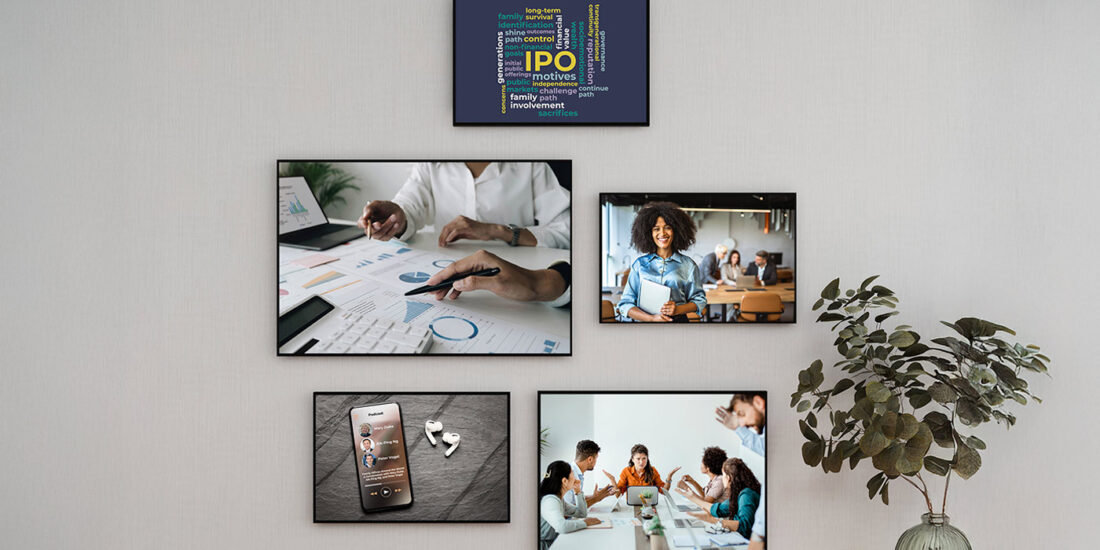
View this edition in our enhanced digital edition format with supporting visual insight and information.
This week’s FFI Practitioner features four sessions to be presented at the October FFI global conference in New York. As part of the conference theme “Evolving the Conversation,” these four sessions will focus on Family Enterprise Education. Read on to learn more about the program and the distinguished practitioners and academics who will be discussing this crucial subject.
The mission of FFI Practitioner is to provide thought-provoking analysis, trends, and research affecting professionals in the family enterprise community. These weekly issues feature practical, user-friendly content, and research on classic and emerging topics.
Every year, however, this digital approach is augmented by the FFI annual global conference, which will be held October 25–27 in New York City. Featuring more than 25 individual sessions and three outstanding keynotes, this year’s event also focuses on emerging topics as it strives to “evolve the conversation.”
Today we feature those sessions that deal with Family Enterprise Education.
Please read on for four sessions that will address this topic in NYC.
Building Blocks of Family Education: Designing Effective Business Family Curricula to Fit Family Needs and Abilities
In 2019, FFI’s 2086 Society commissioned a research report titled “Professionalizing the Business Family,” which focused on the education of knowledgeable and engaged family owners and stewards. An article titled “Developing Competent Owners and Stewards for a Lasting Family Business,” based on said research report, has garnered over 124,000 views since its publication in April of 2022. The education of family owners and the cultivation of family stewards is clearly a topic that moves minds and hearts—but thus far, the frameworks and recommendations available remain high-level, and families and their advisors oftentimes find themselves relying on best practices or starting from scratch when developing educational curricula that fit a family’s specific needs, objectives, abilities, and wallet.
Presenters
Claudia Binz Astrachan
Generation6
Anneleen Michiels
Hasselt University
Read their 2019 FFI Research Report for the 2086 Society, Professionalizing the Business Family: The five pillars of competent, committed, and sustainable ownership
OBJECTIVES
This session presents a research-based framework that is deeply practical by nature: a framework of educational building blocks—based on data gathered in the advisory process as well as data collected through two dedicated quantitative surveys of multi-generational business families—that families and advisors can pick and choose from, depending on their unique circumstances and resources. The individual building blocks are made up of (1) ownership competence topics such as financial literacy, communication skills, or understanding of family dynamics and (2) delivery methods such as activities organized by the family or business (e.g., internships, family retreats, family educational meetings) or outside the family or the business (e.g., EMBA, independent learning, work outside the company). The framework also considers the idiosyncratic circumstances of each family, e.g., their level of maturity in terms of the family’s ability to resolve conflict, the resources available to them (i.e., family members willing to take on responsibility, time, money, logistical support, and infrastructure available), or the level of complexity within the family.
The presenters explain the process of customizing the building blocks to a family’s needs through a series of guided conversations (discussion questions provided), allowing for a mix-and-match approach of the individual educational building blocks to meet the family’s educational needs and goals, all the while leveraging the process by including family members in the development of their curriculum, thus securing their buy-in.
Creating the Post-COVID Global Family Business Classroom
The University of San Francisco (USA), Javeriana University (Columbia), and Ateneo de Manila University (Philippines) have collaborated to create and implement an academic program that exposes students, instructors, and the associated engaged family-owned companies to real-life business situations, diverse multi-cultural contexts, and interdisciplinary approaches to understanding the operational complexities and needs of families-in-business. The program expands the “classroom” to provide students, instructors, and the involved firms with a deeper learning experience that lays the foundation for future roles as active family, family business managers/owners, instructors, and/or advisors.
Presenters
Pilar Tolentino
Ateneo de Manila
Monika Hudson
University of San Francisco
Fernando Pereira
Javeriana University
OBJECTIVES
The session is designed to stimulate discussion about different ways educational institutions can collaborate to co-create a deeper, broader learning experience for students, instructors, and families-in-business who engage with university-based family business courses. A framework used by the University of San Francisco, Javeriana University, and Ateneo de Manila University will serve as a springboard for identifying points of convergence that may be replicated with and/or by other academic institutions.
How Families Learn and Why Understanding Changes Everything
Often consultants and educators are frustrated that despite their best efforts, families often reject the advice or education they are offered or seek to apply this advice/education in “their own way,” diminishing the value of the information or experience. Even within families, parents and other family leaders are often frustrated with their inability to influence the family. Various explanations have been given for the complexity involved in influencing families, but little attention has been given to how families learn. In this session, attendees will be presented with findings from over 10 years of research into how families learn and will hear how this research has been applied to learning programs that are transforming how families interact and work together.
Presenter
Matt Allen
Babson College
OBJECTIVES
- Present the program including the research, approach, and outcomes.
- Share with participants they key takeaways learned from over 10 years of research
- Teach participants how they can use the findings from the research and educational approach to change their work with families (program is applicable for consultants, academics, and family leaders)
- Allow participants to experience the learning approach through an in-session interactive exercise
- Share goals and next steps for the research and program
Wealth 3.0: A New Paradigm for Education and Research in Family Wealth Advising
Wealth advising is evolving away from its long-term focus on fears, failures, and damage to the family by wealth. New strengths-based approaches are being implemented that support family thriving. This session outlines efforts the field can take to build a core curriculum specific to wealth advising, including rigorous new research to support practitioners.
Presenters
Dennis Jaffe
BanyanGlobal
Listen to Dennis’s FFI Practitioner podcast, “Becoming a More Conscious Advisor: Models for Managing Differences”
James Grubman
Family Wealth Consulting
Read James’s FFI Practitioner article, “A Renewed Call for Accurate Research about Family Wealth Longevity”
Kristin Keffeler
Illumination360
OBJECTIVES
- Emphasize wealth advising as a truly distinct field from family business advising
- Explain the case for a new, more positive approach
- Discuss how more comprehensive education and training would advance family wealth advising
- Demonstrate examples of more rigorous and practical research that would support practitioners in family wealth advising
Click to see the entire program and to register. The spring registration rate closes June 30.
In late summer and early fall, FFI Practitioner will feature editions that highlight conference sessions on “Next Gen: What’s next?” and “Family Office: Into the future.”

View this edition in our enhanced digital edition format with supporting visual insight and information.





